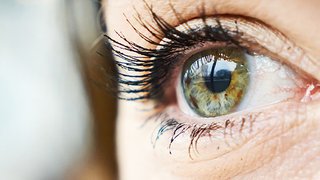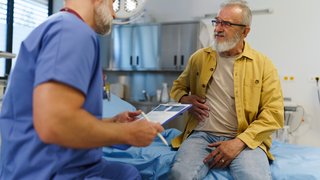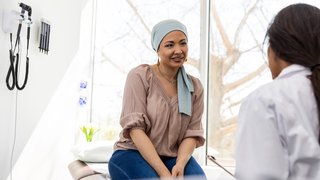Ask the dietitian: How can good nutrition help cancer patients?
February 22, 2024

Good nutrition is particularly vital for cancer patients undergoing treatment because it can help them maintain energy and strength, lead to better tolerance of treatments such as chemotherapy and radiation, reduce their risk of infection, and help with healing.
February is national Cancer Prevention Month, so we asked Bailey Irvin, RD, LD, a clinical oncology dietitian at UT Southwestern Medical Center at RedBird and a member of our Harold C. Simmons Comprehensive Cancer Center, to answer some commonly asked questions about diet and nutrition, with a focus on those individuals who have received a cancer diagnosis.
Q. How can diet affect metabolism and cancer growth?
A. We believe excess body weight (being overweight/obese) can cause chronic inflammation, increasing the likelihood that cancer will develop. The metabolic processes related to diet and cancer growth are not well understood, but we do know that both the cancer itself and the treatments can alter the way your body processes nutrients, especially with cancers of the gastrointestinal (GI) tract. More specifically, tumors in the head/neck, stomach, or intestines can interfere with nutrient absorption, leading to malnutrition or deficiencies in vitamins and minerals your body needs. We also know that alcohol can increase estrogen levels in the blood and that higher estrogen levels are linked to an increased risk of breast cancer.
Q. Are there certain foods cancer patients should avoid?

A. In general, there are no specific foods patients with cancer should avoid. If you have a compromised immune system, however, you will want to steer clear of foods that are more likely to give you foodborne illness, such as raw fish/sushi, unpasteurized dairy, foods containing raw eggs, and produce that has not been washed. Alcohol and highly processed foods should also be on the “avoid” list.
Additionally, grapefruit and grapefruit juice is believed to block the metabolization of certain chemotherapy agents, so check with your provider on specific guidance on your treatment.
Related reading: Learn more about the Culinary Medicine Program at UTSW RedBird.
Q. What foods can you recommend for cancer patients?

A. When you have cancer, you may need extra protein and calories, so here are some options:
Protein-rich foods: Chicken, turkey, fish, eggs, lean red meat and pork, beans/legumes, tofu, tempeh, dairy, nuts/seeds
Healthy fats: Avocado, nuts/seeds, olive oil
Nutrient-rich carbohydrates (unless you have been instructed to follow a low-fiber diet): Whole-grain bread, whole-wheat pasta, brown rice, quinoa, oats, bran
Q. Can eating a better diet reduce your cancer risk?

A. Diets rich in whole grains, fruits, vegetables, and beans can help protect against colorectal cancer. Additionally, high fiber, low-fat foods can limit overweight and obesity, which increases your risk of developing many types of cancer. In addition to following a generally healthful diet, the American Institute of Cancer Research recommends the following to protect against cancer: Limit alcohol consumption, limit “fast” or processed foods, and limit intake of sugar-sweetened drinks (Preventing Cancer | The Nutrition Source | Harvard T.H. Chan School of Public Health). Excessive intake of simple sugars can lead to elevated levels of insulin and insulin-like growth factor. Chronically elevated levels of insulin have been associated with an increased risk of developing cancer.
While there is no specific food that can prevent cancer, a healthy dietary pattern across the lifespan can reduce the risk of developing cancer by 10%-20%.
Q. How can cancer patients make good dietary choices?

A. The best way for patients dealing with cancer to make choices about eating is to reach out to the registered dietitian on your health care team for individualized recommendations. The diet that is best for you depends on several factors, including the type and location of cancer you have, the type of treatment you’re receiving, side effects that you may be experiencing such as taste changes or diarrhea, and personal/cultural food preferences. In general, it is best to consume whole, nutritious foods that have been minimally processed. However, patients with highly metabolically active cancers, such as cancers of the GI tract, are more likely to experience weight loss and may require a high-calorie diet to maintain their weight. Patients should always consult their health care providers before making major dietary changes.
Q. What else should people know about diet and cancer?
A. While well-meaning friends and family often give advice about nutrition, remember that your journey and your goals are unique. There is no “one size fits all” when it comes to the best diet for cancer.
Do not hesitate to bring your questions and concerns to your dietitian, because he or she is familiar with your individual diagnosis, treatment regimen, and eating challenges. Additionally, be sure to make your team aware of any vitamin, mineral, or herbal supplements you are taking – these have the potential to reduce the effectiveness of certain cancer treatments.
For more information about cancer care and nutrition, please visit our oncology nutrition website.










